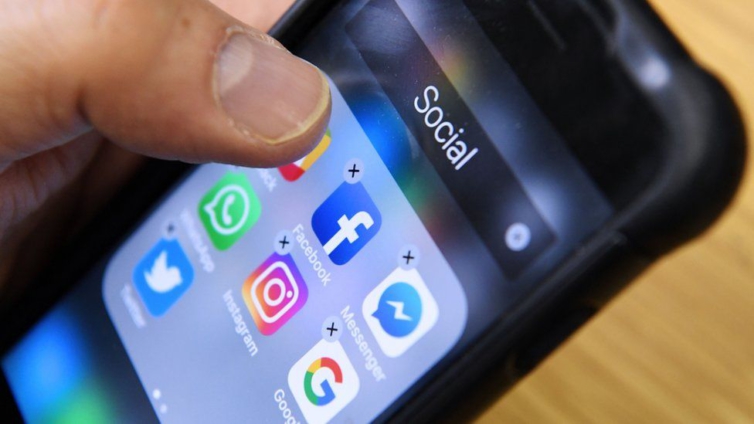Instagram and Facebook users will now be able to pay for a blue tick verification, parent company Meta has announced.
Meta Verified will cost $11.99 (£9.96) a month on web, or $14.99 for iPhone users.
It will be available in Australia and New Zealand this week.
Mark Zuckerberg, Meta chief executive, said the move will improve security and authenticity on the social media apps.
The move comes after Elon Musk, owner of Twitter, implemented the premium Twitter Blue subscription in November 2022.
Meta's paid subscription service is not yet available for businesses, but any individual can pay for verification.
Badges - or "blue ticks"- have been used as verification tools for high-profile accounts to signify their authenticity.
The subscription would give paying users a blue badge, increased visibility of their posts, protection from impersonators and easier access to customer service, Meta said in a post on their website.
The company told the BBC the change would not affect previously verified accounts, but noted there would be an increase in visibility for some smaller users who become verified thanks to the paid feature.
Allowing paying users access to a blue tick has previously caused trouble for other social media platforms.
Twitter's pay-for verification feature was paused last November when people started impersonating big brands and celebrities by paying for the badge.
Meta said Instagram and Facebook usernames will have to match a government supplied ID document to be granted verification, and users will have to have a profile picture that includes their face.
Other websites like Reddit, YouTube and Discord similarly use subscription-based models.
Meta has not yet specified when the feature will be rolled out to other countries, although Mr Zuckerberg said in a post it would be "soon".
In November, the company announced 11,000 job losses as a result of over-investment during the Covid-19 pandemic.
At the time, Mr Zuckerberg said he had predicted an increase in Meta's growth based on the rise it had over the pandemic, but that ultimately did not happen.
"Many people predicted this would be a permanent acceleration," he wrote, "I did too, so I made the decision to significantly increase our investments."
Instead he said "macroeconomic downturn" and "increased competition" caused revenue to be much lower than expected.
"I got this wrong, and I take responsibility for that," he said at the time.
Latest Stories
-
Opoku-Agyemang undergoes treatment at UGMC, set to receive further care abroad
2 hours -
The mystery of Bomigo: an island of divine laws, sacred goats, and unwavering traditions
4 hours -
Government’s GH₵ 292.4 million mistake: why free sanitary pads are the problem, not the solution
4 hours -
Crystal Palace beat Fulham to book FA Cup semi-final spot
13 hours -
Forest beat Brighton on penalties to reach FA Cup semi-final
13 hours -
MTN FA Cup 2024/25: Berekum Chelsea book semis slot with win over Bechem United
13 hours -
Gov’t promoting galamsey with GoldBod; the GoldBod is galamsey board – Minority
14 hours -
Ghana Navy probes suspected pirate attack on fishing vessel
15 hours -
2024/25 FA Cup: Attram De Visser stuns PAC Academy to reach first-ever semifinal
15 hours -
‘Shocking and excessive’ – Lawyer challenges $18m verdict in Anas-Kennedy Agyapong case
17 hours -
Parliament approves GH₵2.8bn for road maintenance
17 hours -
Minority Chief Whip raises concerns over ambiguities in Gold Board bill
18 hours -
Mahama warns leaders against ‘decisions that kill’ after debt crisis claims lives
18 hours -
Wisconsin Attorney General sues to block Elon Musk $2m election giveaway
18 hours -
Disney faces US investigation over DEI practices
18 hours

